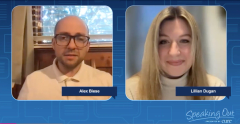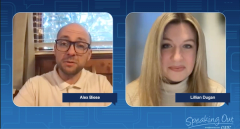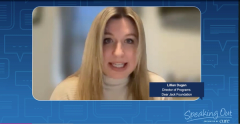
Caregivers of AYA Patients Need to Ensure ‘Your Cup is Full’
As part of its Speaking Out video series, CURE® spoke with Lillian Dugan of the Dear Jack Foundation about the needs of caregivers for adolescent and young adult patients with cancer.
A cancer diagnosis not only impacts a patient but also extends to their circle of loved ones. As family members, partners, and friends transition into the role of caregivers for adolescent and young adult (AYA) patients with cancer, they face a myriad of emotional and practical challenges of their own, as Lillian Dugan, director of programs for the Dear Jack Foundation, explained.
"[Being a caregiver] is a new role that gets thrown into the mix," she said.
Recognizing the importance of self-care, Dugan underscored the need for caregivers to prioritize their own well-being amidst the demands of caregiving.
"Making sure that your cup is full before filling someone else's" is paramount, she said, explaining that engaging in hobbies or activities unrelated to cancer and seeking support outside of caregiving circles are vital strategies for maintaining emotional resilience and preventing caregiver burnout.
Beyond ensuring basic necessities of food, water and shelter, caregivers may also have to intuit what the patient they are caring for needs.
“Our participants are not always knowing what they need, and that can be really challenging for our caregivers and our loved ones — because that's our first line of defense, [asking] ‘Well, what can I do? How can I help? What do you need?’ And a lot of times, [for] anyone going through cancer treatment, they might not be able to answer that,” Dugan said. “So, I have [heard] from our participants … they might not know what they need, but they know that they don't want to have to worry about dinner. So, [think about] dropping off dinner. They don't know what they need, but their kid might need a ride to school today.
“So, I think not always placing the burden on the individual who's going through cancer treatment can be really hard as caregivers and taking a step back and maybe having some thoughts about what they might need, what might be helpful to them [is important].”
Dugan highlighted the importance of accessible resources and support networks for caregivers. Online groups tailored to specific cancer types offer a platform for caregivers to connect with others facing similar challenges, providing a sense of community and solidarity, while organizations such as the Dear Jack Foundation offer retreats and programs designed to support caregivers in recognition of their integral role in the cancer journey.
For more news on cancer updates, research and education, don’t forget to








